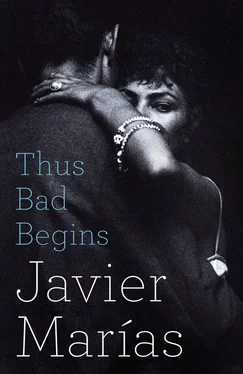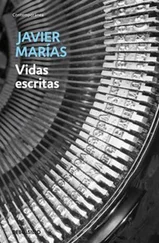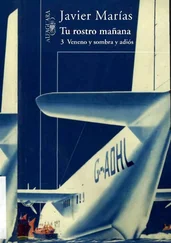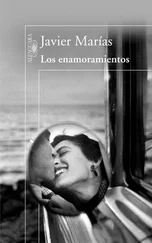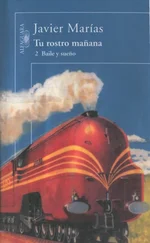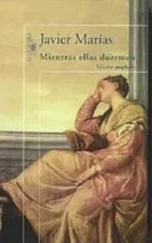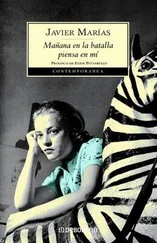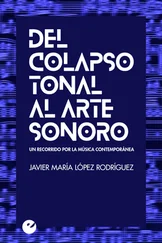‘I don’t understand,’ I said, but that wasn’t really true. I was beginning to understand quite a lot or to piece things together and to imagine. Not only based on what Muriel had said to me before he changed his mind, but also on what Van Vechten himself had let slip on our nocturnal sorties, and the way he had behaved with my girlfriends (I suddenly wondered what he could have used to blackmail them), and on what I’d been told by the high-up civil servant with the glossy legs, Celia, about the time she went to him as a patient.
‘Well, Van Vechten enlisted in Franco’s army and stayed there throughout the War. He was very young at the time, he was born in 1918 or 1919, if I’m not mistaken. Apparently, when war broke out, he was at his parents’ summer place in Ávila.’ — Van Vechten’s once-Flemish family, I recalled, came from Arévalo. — ‘When the university was closed, he had already completed the first two years of a medical degree. As a university student, he was rapidly promoted to Acting Second Lieutenant. But I don’t think he ever actually fought in the War. He was very young and thanks to the influence of his family, who were extremely right wing and well connected, he was immediately assigned to an intelligence unit, so he wouldn’t have to risk his skin at the front. I’m not sure if he met Arranz there or later, it doesn’t matter, perhaps they met at the so-called “Patriotic Exams” in 1940.’ He made that awful gesture imported from America that people use to indicate quotation marks. I had no idea what those exams were, but I didn’t want to interrupt him. ‘He began collecting and filing away all the information he was given, some of which was passed to him by fifth columnists in Madrid when they could, or by others taking refuge in embassies and who received news from the outside world, and while some of this information was reliable, some of it was complete fantasy or a distortion of the facts. Much of that information was useless as long as Madrid remained in Republican hands, but would prove invaluable when the capital finally fell. He was one of the people in charge of storing, selecting and ordering this information, and as soon as the city surrendered, he was able to do this unimpeded, all obstacles removed, and there was no shortage of the stuff either, because here, as everywhere, volunteers came crawling out of the woodwork to tell what had happened during the nearly three years of the War, both the true and the false, the population being eager to ingratiate itself and make amends. That’s how he came to find out what numerous individuals had done and said; some had committed atrocities, others were merely sympathetic to the Republic or readers of a certain newspaper. The usual story of indiscriminate accusations. In short, when the War ended, Van Vechten was a man who knew a lot about a lot of people and, besides, it was easy enough to invent facts if you wanted to harm someone. If you could prove your loyalty to the regime, there was no need to provide proof of someone’s misdemeanours; with very rare exceptions, an accusation was all it took. He collaborated with the police as necessary, giving them enough useful tip-offs for them to respect and believe him. Once the most urgent cleansing was done, I suppose he realized he could make use of his knowledge, long-term and for his own benefit, if he rationed it out. He went back to university and decided to specialize in paediatrics, and from then on it was plain sailing. In those “Patriotic or State Exams” in 1940’ — Vidal again made the quotation-mark gesture presumably acquired during his time in Houston — ‘after the university reopened in the autumn of 1939, those who had fought on the winning side and had, therefore, supported the Glorious Nationalist Movement, were given the “Patriotic Pass” for any exams they attended wearing their army uniform, some complete with cartridge belt and pistol. I learned all this from Dr Naval, who’s about the same age as Van Vechten, maybe a couple of years younger, and who sat it out in Spain for a while until he was offered a post abroad and could leave thanks to a relative of his in the diplomatic service, who got him a passport. That’s apparently how things worked, although nowadays it sounds like a bad melodrama or a caricature. Naval laughed a bit when he told me, imagining Van Vechten all got up in his second lieutenant’s uniform for the exam, but, he thought, probably without his pistol, Van Vechten was canny enough even then to avoid such swaggering behaviour. Anyway, they gave him his degree, deeming him to have completed his studies.’
Vidal stopped speaking and took a long drink of his new and as yet untouched beer, and to give him more breathing space, rather than because I had anything to say that he didn’t already know, or so I assumed, I said:
‘Yes, I understand he had a brilliant career. I read that when he was only twenty-three, he was appointed Assistant Paediatrician at the Hospital de San Carlos and that, when he was only about thirty-one or so, in 1950, he opened a consulting room at the Clínica Ruber. Such precociousness could hardly have been the norm, not even then. With so many people dead or in exile or imprisoned and so many people like your grandfather, who was banned from practising as an ophthalmologist, they must have had to make do with whoever was available, plus, of course, they had to have a spotlessly franquista record. That would certainly have cut down the number of candidates. But that still can’t be the whole explanation.’
‘Yes, he was suspiciously precocious, but then he wasn’t alone in that. Mainly, though, I’m just relieved to know that you’re not completely in the dark about him, as I feared when I first saw you out partying with the bastard.’
‘As I said, my boss asked me to befriend him and see what I could worm out of him. I have to say I didn’t get very far. I gleaned all those facts about his life from Who’s Who , and then Muriel pulled me up short, told me to leave him alone. That doesn’t mean I don’t want to know why, according to you, he’s such an utter bastard. I did quite like him — sometimes — not that much, you understand, because there’s also something chilling about him, something voracious, even when he’s at his most friendly and paternal, offering fatherly advice. But then it’s rare to meet anyone entirely devoid of charm. I even introduced him to a few of my female friends, but from what you say, I suspect they might not thank me for that. Am I right?’ I suddenly felt alarmed and guilty. Perhaps I had unknowingly let a wolf in among the lambs.
‘Yes, you are,’ replied Vidal, frowning. ‘Mind you, the man’s older now and perhaps makes do with just looking. Let’s hope so. What kind of relations did he have with those friends of yours? Do you know? Did you see for yourself?’
I was feeling increasingly uncomfortable.
‘To my surprise, and if he’s not lying and merely bluffing, he certainly got at least one of them to do much more than you’d ever imagine he could, given the enormous age gap. To be honest, I don’t know how he did it.’
Vidal did not for one moment believe Van Vechten would have played by the book. His instant response was:
‘He’ll have threatened them with something, you can be sure of that.’
‘With what though?’
‘There’s bound to be something. Do your friends take drugs? Do you all take drugs? Did he see you doing it?’
‘In certain places, almost everyone takes drugs now, José Manuel, you know that as well as I do. Especially when you’re out clubbing. I think Van Vechten himself, being a wealthy man, sometimes bought drugs for my various girlfriends or gave them drugs in small quantities, just as an enticement. It’s a sure-fire way of winning people over or at least of wooing them. Well, a temporarily sure-fire way, because young people will flock to anyone who’s got the stuff.’
Читать дальше
